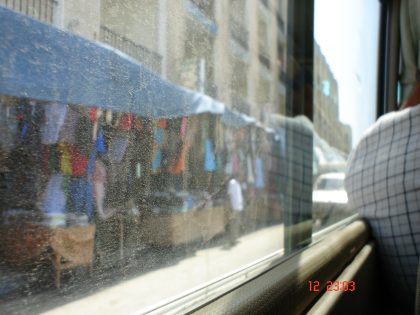
Searching for identity
The award-winning Djiboutian author, Abdourahman Waberi, shares his reflections on writing, power and living with a disability.

The award-winning Djiboutian author, Abdourahman Waberi, shares his reflections on writing, power and living with a disability.

With its new edition, Penguin Classics disfigures Zimbabwean writer Dambudzo Marechera’s novel 'The House of Hunger.'

The South African bowler, Kagiso Rabada, is arguably one of the best to play test cricket, and could retire as South Africa’s highest wicket-taker if the country plays more red-ball cricket.

A book by writer Melissa Thackway and director Jean-Marie Teno highlights an ethical and politically engaged partnership between filmmaker and film critic.

In South African cricket, almost three decades after white rule ended, “local talent” means “local white talent,” even if you’re the national team captain.

The author of 'Now You Know How Mapetla Died,' a book on the murder of a leading Black Consciousness leader, writes about her research.

Filmmaker Khady Sylla amplifies the voices of and gives visibility to the domestic workers tending to the homes of Africa’s middle classes.

Asking whether white people should curate African art anymore, may be outdated. Instead we should ask: what is African art now and does the category matter anymore?

In its first few years, the magazine 'Révolution Africaine' opened possibilities for Franco-Algerian cooperation. It was then co-opted by the state.

The notion that black people were kings in Ancient Egypt is generating a social media backlash. Understanding the racialized legacy of Egyptology can explain why.

Successive Ethiopian governments have continued a 'modernizing' project that not only offers people false dreams, but actively dislocates them from the things that gave them purpose in the past.

By looking through the lenses of Brussels’ diverse youth, 'The Porters' questions the ways Belgium fails to deal with its colonial past.

Rwandan writer Scholastique Mukasonga chronicles life, death, return and grief in her story collection, 'Igifu.'

Anyone who has attempted to describe dance in writing knows how difficult it is. These books on dance on the continent and the diaspora gets close.

The writings of Ugandan lawyer David Mpanga are both literary and legalistic, rooted in African conceptions of storytelling and self-determination.

Despite its proud history, the South African Communist Party has recently taken a backseat in South African politics. Understanding its roots helps us understand how it got here and what it will take to be rejuvenated.

The intergenerational traumas of an anti-Black world in August Wilson's Fences are only too familiar to South Africans.

The Senegalese director, Safi Faye’s classic 1996 film, Mossane, is a love tragedy and a spiritual quest in Sereer land.

The excessive reporting of the interplay between non-African powers in the Sahel—however crucial it may be to understand regional dynamics—betrays a Western-centric bias in international news coverage.

South African jazz drummer Tumi Mogorosi’s latest project is a call to black people to share the questions that render our condition one of deep ache.